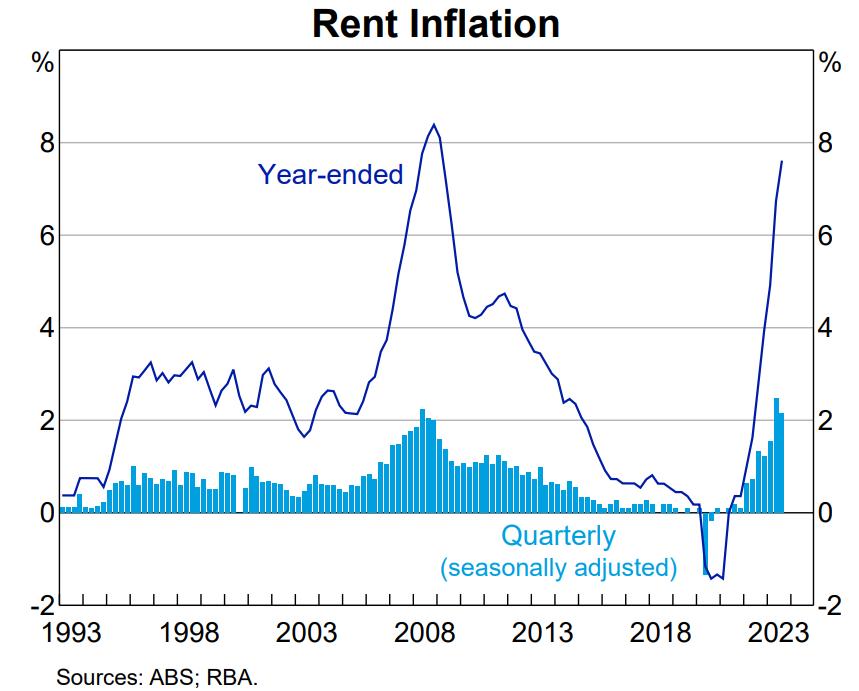On Tuesday, I was interviewed by Sharri Markson from Sky News regarding the Reserve Bank of Australia’s (RBA) decision to keep interest rates on hold at Tuesday’s meeting.
In the interview, I explained why I believed that the official cash rate (OCR) has likely peaked, but that inflation would remain “higher for longer” due to the Albanese government continuing to pump demand through historically high levels of immigration.
It turns out that both CBA and Westpac also believe that the OCR has peaked, with CBA tipping rate cuts late in 2024.
Below are key highlights from the interview.
Edited Transcript:
Sharri:
We’re starting to see a difference in the Australian experience to overseas. We’re seeing inflation fall faster overseas and an expectation that rates might actually start to fall overseas. Why is Australia not having the same success?
Leith:
Basically, it gets down to our services inflation being stickier than overseas. But that said, inflation pretty much across the globe is falling. It’s just that ours isn’t quite coming down as quickly.
And one of the major reasons for that is the federal government is obviously running this record immigration program. And it’s growing the population so quickly in Australia that it’s basically adding to demand pressures across the economy.
And that’s not happening in most other countries. Most other countries aren’t growing their populations so quickly. So the demand’s not growing as quickly. And that’s basically helping to keep Australia’s inflation higher than it otherwise would be.
We’ve seen that most notably in the rental market where rents are going through the roof. And rents are actually the second biggest component of the CPI. So when rents rise, it puts upward pressure on inflation.

Sharri:
We’re seeing the treasurer put forward this suggestion about having another cost-of-living relief package… Are you concerned about this?
Leith:
It really depends on how it’s designed. So if you just give dollars to households, households will go out and spend it. And that’ll put upward pressure on demand.
But if you do other things, you can actually use those subsidies to bring down prices. So for example, if they cut the fuel excise – I’m not saying they should – that would lower inflation. Or alternatively you know child care subsidies or energy rebates, rental rebates, those things can actually bring down prices at the margin.
That’ll actually reduce inflationary pressure. So, it all depends on how it’s designed.
Sharri:
Do you think that Australians are looking at higher rates higher inflation for a longer period?
Leith:
I actually think we’re probably at the peak of the cash rate, purely because a whole lot of indicators are coming off.
That said, I think we’re going to have these highish interest rates for an extended period. And again, it gets back to the same forces.
The federal government has basically got its foot on the accelerator bringing in a whole bunch of consumers through immigration – record numbers – and that’s keeping the pedal on demand while the RBA is trying to slow demand with interest rates.
So, we’ve got basically the federal government and the RBA working at cross purposes. And that’s obviously not helping the situation here in Australia.

